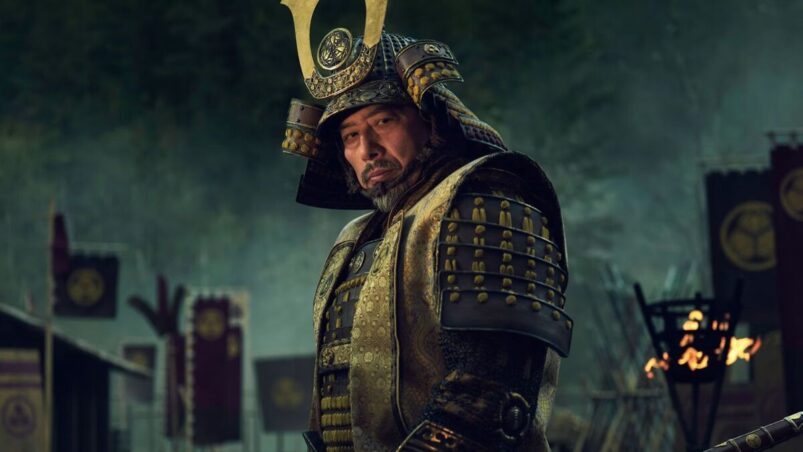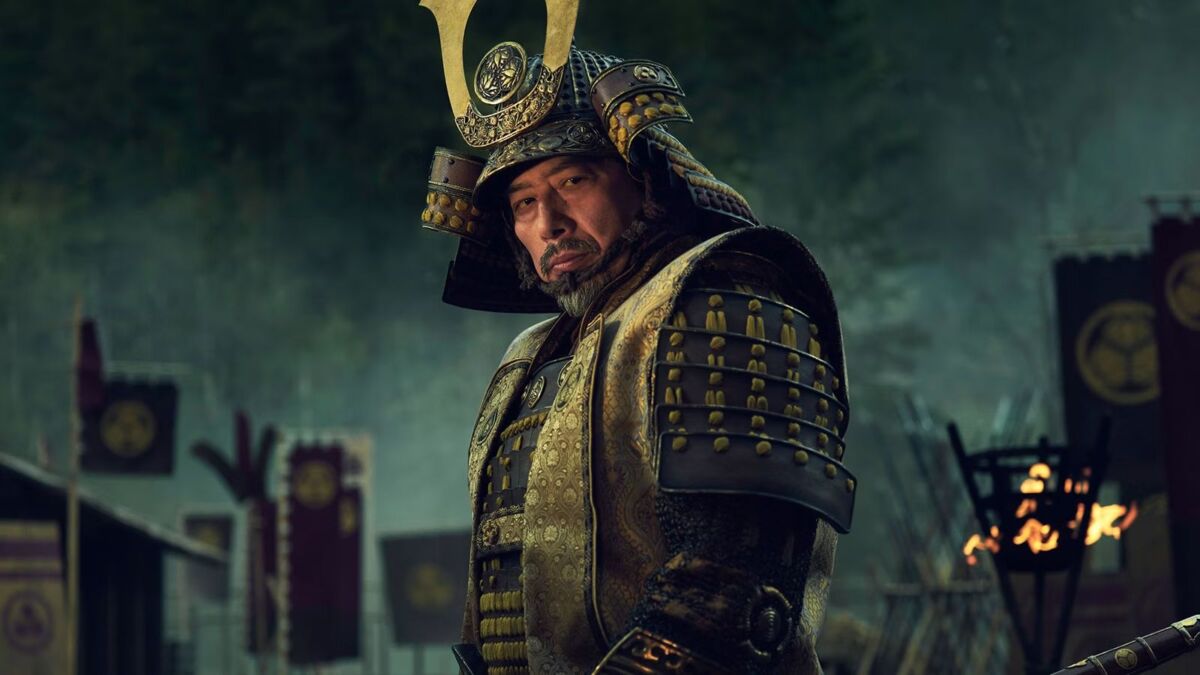In spite of Game Of Thrones’s collapse from grace, TV hasn’t stopped looking for the next one – not least by going ahead with the prequel. So, in making Shogun, a tale of flawed, ambitious figures that’s full of court intrigue and teases a big, explosive climax from minute one, are Disney showing their hands a bit too much?
In all honesty, Shogun lacks Thrones’s sprawl, there’s not the wide cascade of factions who all have their own merchandise. Its slice of Japanese history quickly crystallises into a straight two-sided conflict between Hiroyuki Sanada’s reasonable authority figure, and the coalition of snarling villains who want rid of him (Takehiro Hira brings an excellent contemptuous scowl to the table, he’s the kind of guy you’d be proud to have tying you to the train tracks).
The other obvious similarity is that Thrones could be gritty in the time-honoured way of graphically depicting sex and violence. Shogun does both of these too, but its own grit comes from a slightly different direction – and given its slightly fanciful construction, the verisimilitude needed to truly be anywhere near gritty is something it has to claw back in the face of that.
How Shogun does this is in brushing against both ends of the spectrum. And it does this by presenting borderline farcical scenes – typically those where Cosmo Jarvis’s flotsam Englishman staggers helplessly through formal Japanese occasions – as well as serious scenes that are quite remarkably solemn or wirecutter tense, and not toppling into the cul-de-sac of letting these two strands fatally undercut each other.
What’s particularly impressive is that the two strands can bleed into each other, without being their own mutual downfalls. As Jarvis’s hilariously awkward dinner party wears on and more sake gets put away, events slip quite naturally from culture-clash misunderstanding to really quite troubling. Likewise, some very tense scenes manage to comfortably include Jarvis bellowing and swearing in a language nobody else present understands, and somehow he just seems like a wildcard rather than something dropped in from Saturn.
For all the parallels people have drawn between Britain and Japan – two stuffy, imperially-minded island nations that make a big song and dance about cups of tea – Jarvis couldn’t be much more of a fish out of water while still wearing clothes. But this doesn’t result in a Buck Rogersy amazement that it’s possible to be brash and loud, his hosts are quite clear that they regard him as a bizarre barbarian. He bends to the culture he finds himself in, not the other way round, and we are thrown in alongside him.
This is a fault of circumstance rather than of the writers and actors, but in an increasingly globalised world this culture shock isn’t quite as eye-popping for the audience as it might have been for those watching the 1980s version (to say nothing of the real Englishman on whom Jarvis’s character is based). Although the various shogunates are far from common knowledge outside Japan, the West has an endless appetite for Japanese media, and by extension Japanese culture with it. In that way, then, we are sort of relying on Jarvis’s own shock and bafflement to emphasise the sheer difference in play.
There are some noticeable times when things have to be glossed over to keep the story moving. Jarvis reloads a flintlock pistol multiple times far faster than is humanly possible, but in the cut and thrust of an action scene that’s forgivable. More jarring are the occasions that big plot developments begin and end with ‘I’ve received a letter from lord whoever that says such and such’ – which might be more realistic than nerve-fraying negotiations over tea, but then that’s what we’re here for, to see these developments being hammered out, or falling apart as it might be, on an interpersonal level, with spit flying and temples throbbing.
The less-is-more of Shogun’s violence is tempered by the way politesse is used like a knife-blow. An apologetic insistence on decorum, here, draws as many awed gasps as slapping someone in the face. And having established that violence is on the cards, even these pointedly polite disputes carry the same stakes – if not more – as any Mexican standoff or scrap with broken bottles.
Where the lines of politesse and violence finally converge is in seppuku, that fun, friendly practice of answering for your shame by cutting your own stomach open before a trusted assistant lops your head off. It’s said that war is the continuation of diplomacy by other means, but here it can culminate in formalised ritual suicide as well: that is the bloody and unpleasant point that nobody really wants it to escalate to, escalate though they may.
And Shogun teases the idea of seppuku from very early on, establishing firmly that yes, this is something that happens in this society. But, like everyone onscreen, it has a natural reluctance to actually go there, and doesn’t actually show the act until the stakes have gotten very high indeed – even when, as I say, there’s ample opportunity to feature wall-to-wall gutletting from minute one.
So here’s our clear point of difference, the thing that stops this from being Game Of Thrones In Japan™. From the start, Thrones proudly promised that there would be massive apocalyptic conflict coming (and it was when this failed to meet expectations that people went off the show). Shogun has that as a possibility, no doubt, but underlying the flinty war faces of its various nobles is an all-too-human ‘ooh, I hope that doesn’t happen, though’. If not for the need to establish the real and serious human costs of these conflicts, it’s surprisingly easy to imagine Shogun not featuring any violence at all.
So yes, Shogun is very much playing out another grand-scale televisual game of who gets the big chair. No, it doesn’t play this out through an endless series of bigger and bigger battles, each more climactic than the last and massively mattering to someone presumably. But it does put human faces on it, and puts those faces through the wringer of high drama in a way even the best and most elaborate action scenes can’t.
READ NEXT: 10 Games Ruined By Stupid Release Dates
Some of the coverage you find on Cultured Vultures contains affiliate links, which provide us with small commissions based on purchases made from visiting our site.


